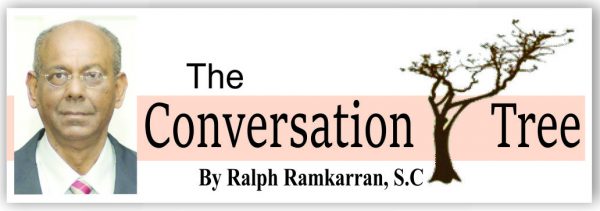 Like everything else, political parties undergo change and renewal. The reasons, circumstances and methods of change are of infinite range. In Guyana, change has not escaped the PPP in its long history. More recently, current changes began with the passing of Cheddi Jagan in 1997. While there have been dramatic moments, the changes were largely incremental. The PPP of today has little resemblance to the PPP of 1997, except that its outmoded constitution, structure and system of democracy remain in place, perhaps conveniently. While I was severed from the PPP in 2012, my contemporaries have departed or have, or have been, retired or no longer wield influence. Admittedly, most of us are now rather long in the tooth.
Like everything else, political parties undergo change and renewal. The reasons, circumstances and methods of change are of infinite range. In Guyana, change has not escaped the PPP in its long history. More recently, current changes began with the passing of Cheddi Jagan in 1997. While there have been dramatic moments, the changes were largely incremental. The PPP of today has little resemblance to the PPP of 1997, except that its outmoded constitution, structure and system of democracy remain in place, perhaps conveniently. While I was severed from the PPP in 2012, my contemporaries have departed or have, or have been, retired or no longer wield influence. Admittedly, most of us are now rather long in the tooth.
The PNC has also had its moments. After the passing of Forbes Burnham in 1985 there was a sharp reversal of policies. Then President Desmond Hoyte accepted the conditionalities of the International Monetary Fund, which saw an immediate and extensive cutback in government expenditure and devaluation of the currency that led to stark poverty. Other measures, such as privatization, followed. Then came the wholesale demolition of the left in the PNC with the symbolic, enforced, departure of Elvin McDavid and Ranji Chandisingh and many more.
After its defeat in 1992, a second wave of departure was triggered by the expulsion of Hamilton Green from the PNC, which sent shock waves throughout the party. When Green formed his Good and Green Guyana party, a number of PNC members and supporters joined. The GGG, as it was called, won enough seats at the Mayoral elections in Georgetown to have Hamilton Green elected as Mayor. He served for two decades, not because of the strength of his party, which dwindled, but because no elections were held for that period, one of the reasons for the downfall of the PPP in 2015. As if to replenish PNC ranks, there was an influx of new, younger faces, including the late Debbie Backer, Clarissa Rhiel, Stanley Ming, Jerome Khan and many others, at Hoyte’s invitation.
The loss by the PNC of significant support at the 2006 elections due to the emergence of the AFC, which drew away that support, and other reasons, signaled the need for a different approach. That was achieved with the selection of David Granger as presidential candidate for the 2011 elections, which was received with much goodwill. Even though the vision and foresight of Robert Corbin oversaw this process, David Granger manoeuvred himself from Opposition Leader to Leader, displacing the formidable Robert Corbin, who did not contest. It is believed, however, that Corbin retained his clout within the party and the marshalling of his forces was responsible for the defeat of both Carl Greenidge in a later leadership contest with Granger, in which there have been persistent allegations of rigging, and the recent success of Volda Lawrence as Chair over Joe Harmon, who had strong backing from Granger.
In Guyana’s politics, the succession to leadership was chaotic as often as it was seamless. In the former case the leaders, Forbes Burnham and Cheddi Jagan, passed unexpectedly. In the latter case, Janet Jagan and Robert Corbin chose their successors. Burnham’s passing at the age of 62 was unexpected. Presumably he felt that he had time. Cheddi and Janet Jagan, nearing their 80s, adamantly refused to either name, indicate or hint at a potential successor or successors or a succession plan. The bequeathing of the leadership by Cheddi Jagan to Janet Jagan on his sick bed in the US in 1997, without advisers or voters, was an obvious attempt to maintain stability and not meant as a serious plan, although some elements in the PPP leadership promoted the 77-year old Mrs. Jagan to preserve their own ambitions, which had not yet matured. Mrs. Jagan’s strong resistance to being named as the presidential candidate by the PPP in August 1997, overcome by some conspirators’ overwhelming pressure, turned out to have been perceptive. Her government and the conspirators’ plan failed.
David Granger, with authority in his hands as Representative of the List, now has a second chance on ensuring that Harmon succeeds him. No votes are needed. In one fell swoop, following the pattern, not of his hero Forbes Burnham, but of the man who killed his military career, Desmond Hoyte, decimated the top leadership of the PNC as parliamentarians, including himself, so as to ensure that Harmon is elected to the formidable position of Opposition Leader. It is not known if Granger had to consult with Robert Corbin, or the latter was consulted and agreed, or if his hold on the rank and file has diminished. Granger may have felt that if he could have jumped from Opposition Leader to Leader in the past, so could Joe Harmon. This time around Granger will not be a contestant. But Volda Lawrence and/or Basil Williams might be and Robert Corbin might still be in play.
If the Granger/Harmon plan succeeds, the grip of the military class on the PNC, politically nurtured by Burnham, assisted by Granger, and now getting the opportunity to flex its political muscles, will become tighter. The military’s loyalty to the party was not tested this time around, although it came close.




